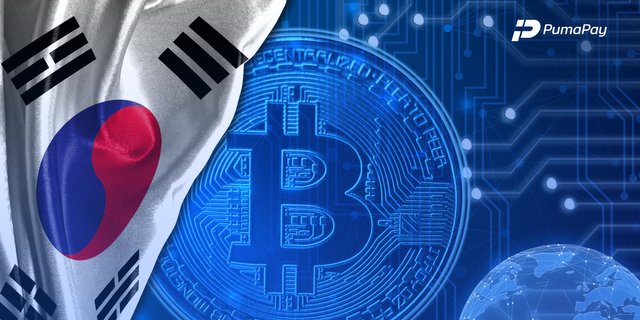Cryptocurrency is South Korea’s Biggest Obsession

Cryptocurrencies have become a South Korean staple, and the country is now the third-largest market for digital currency, behind the US and Japan. The South Korean frenzy with cryptos was first experienced back in 2017 on South Korean exchanges where the price of Bitcoin hit $10,000 before traders in the US had even reached a similar level.
In a country where social status, fashion, money and being a celebrity is all that matters, it comes as no surprise that cryptocurrencies will be especially popular among the young.
According to a New York Times article, the fact that young South Koreans are “looking for a way out of their dead-end prospects, has helped turn the country into a capital of the wild world of cryptocurrencies.”
As a disruptive force, cryptocurrencies have held the promise of disruption and destruction of a social order which saw a large portion of the population struggling, and a small portion enjoying privileges that the young would never ever have access to. Investing in cryptocurrencies has been a way out for many young South Koreans who have been unable to get a government position or a job in a powerful corporation. Take for example Samsung which dominates South Koreans’ lives: “You can use a Samsung credit card to buy a Samsung TV for the living room of your Samsung-made apartment on which you’ll watch the Samsung-owned pro baseball team.” Being outside of this consumerist dream, is a nightmare. Young Koreans have already given up on the prospect of marriage and family. Cryptocurrencies then offer the promise to jump-start their lives and redefine their prospects.
Wealth and Riches
If anyone has ever watched a Kdrama, they would quickly recognize the clichés. A poor struggling young girl fighting to get a desired position in a massive conglomerate finally succeeds as her love interest happens to be the son of a chaebol (a large family-owned conglomerate). This Cinderella story is deeply ingrained in many Koreans’ minds, and no other place embodies this than Seoul’s Gangnam neighborhoods of Cheongdam and Apgujeong. They are the symbols of wealth and privilege and the playground of the entertainment industry. Gangnam is the district where global businesses such as Google, IBM, and Toyota have their offices, and where you can find luxury brands, plastic-surgery clinics, and high-end properties. This is where Kpop celebrities live and where a deposit to rent a home costs 10 years of salary for the average Korean. This is also where DeCentre blockchain café is. A meeting place for crypto-enthusiasts to share their knowledge on the latest blockchain news over a cup of “Ethiopia Buterin” or “Kenya Satoshi Nakamoto,” DeCentre encapsulates South Korean culture. Coffee and cryptos go down very well in South Korea, as lifestyle and finance are appealing to a generation of the young who are struggling to make ends meet.
TV programs are also in tune with the times. “Block Battle: Who’s the next Satoshi?” is a reality TV game show and the “world’s first ever blockchain survival program.” The South Korean show is hosted by Asia Economy TV and features blockchain teams competing to develop technology solutions. The winning team will get a cash prize of 1 million Won ($90,000 USD) and a mentorship program from blockchain experts.
Reality Bites
But this is not the everyday reality for the majority of South Koreans. This is a country where the few enjoy enormous privileges and the many remain unemployed. Average wages are decreasing, while income inequality is increasing.
The Korean labor market is most characterized by a labor market which is divided into regular and non-regular workers. The secretary of the Organization for Economic Cooperation and Development (OECD), Angel Gurría said in an interview with Chang Dae-whan, chairman of South Korea’s Maekyung Media Group, that “We are very concerned about labor market dualism - the division of the labor market into regular and non-regular workers. This dualism is a major source of income inequality and poverty in Korea.”
Within an unequal society, it is not hard to see how cryptocurrencies can radically shift wealth from one group to another. Coupled with a desire to become rich, cryptos hold revolutionary potential for the less lucky in society. It remains to be seen how such potential is utilized and how it will affect the lives of the many for the better.
Congratulations @pumapay! You have completed the following achievement on the Steem blockchain and have been rewarded with new badge(s) :
Click here to view your Board
If you no longer want to receive notifications, reply to this comment with the word
STOP